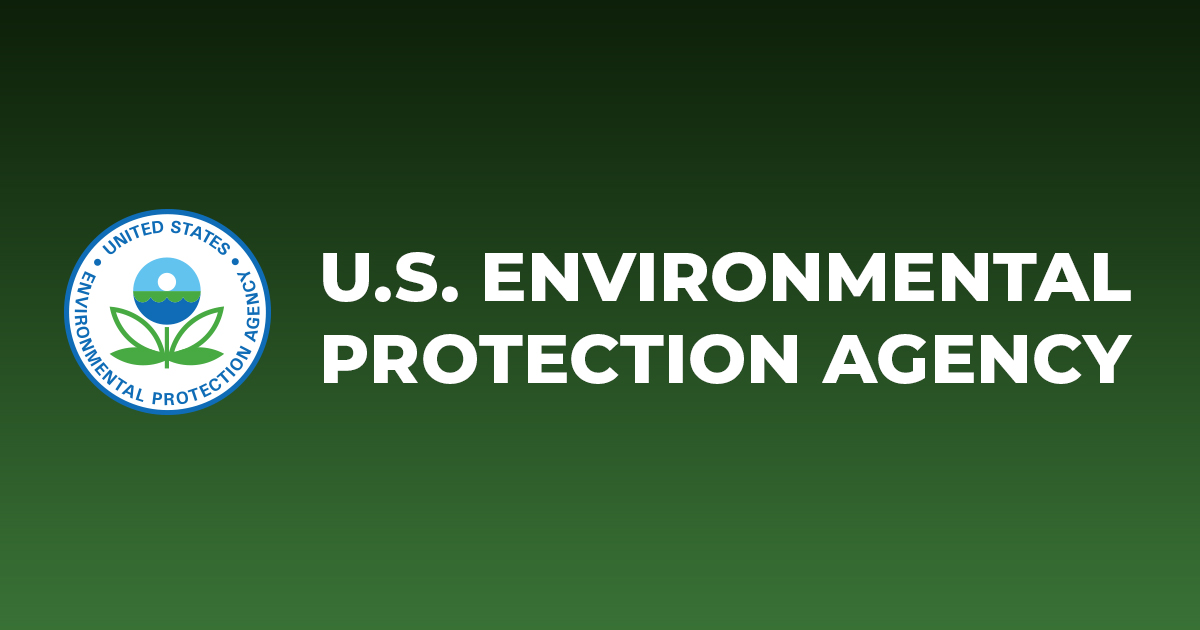The PFAS Saga Is Insane
pfas chemicals are nasty, so are the companies that made it

February 2025
3M hasn't been on my radar in a long time. I vaguely remember them owning Scientific Anglers and Ross Reels at one point, but only recently did their name resurface in my feed. And if you're a fan of Scientific Anglers and Ross Reels, you're probably glad others have taken the reins because previous owners, 3M, seem to have been caught in the act of knowingly harming customers and the environment through the use of, shall we say, undesirable chemicals.
You may have seen the term "PFAS" floating around in recent water news. This swirling issue regained awareness over the past five+ years as investigations into application of these forever chemical exposed detrimental side effects for humans. Let's start with some background...
Background
PFAS is kind of a catch-all term, representing chemicals like Per- and polyfluoroalkyl substances, and a wide family of lab-derived chemicals (~15000 in total) once widely used in industrial and consumer products for their water and grease resistance. You've likely encountered them in products like nonstick cookware, food packaging, and in firefighting foam. The alarm bells now ringing about PFAS stem from the realization of how long these chemicals maintain themselves in the environment and the human body. That's where the 'forever' in 'forever chemicals' comes from. (In reality, it's not forever, but takes tens of thousand of years to degrade.)
Plus, we now know that exposure to PFAS is linked to adverse health conditions, including hormone disruption, infertility, immune system suppression, and increased cholesterol levels. Long-term exposure has also been associated with a higher risk of certain cancers, liver damage, and developmental issues in children. Because PFAS accumulates in the body over time and doesn't quickly break down, even low levels of exposure can pose significant health risks, making their widespread presence a rapidly growing public health concern. It's the greatest problem facing clean drinking water since lead, according to the U.S. Government's Accountability Office, and has even been described as "one of the greatest threats facing mankind" by experts in the UK.
The Past
These chemicals were originally touted as perfectly safe and biodegradable. At least that's what 3M led consumers to believe. Thanks to The Guardian and Watershed Investigations, we know through internal documents that 3M was aware of the lack of PFAS biodegradability as early as 1949. That leaves 40+ years, taking us into the 90's, where 3M-distributed marketing material overstated the timetable for how these chemicals biodegrade. In 1979, PFAS-containing firefighting foams were described by 3M as "environmentally neutral", "biodegradable", and "low in toxicity". But this messaging differs from what was happening internally at 3M. Enough evidence surfaced to payout a $890 million dollar settlement in Minnesota in 2018, and again in 2023 at a cost of $10 billion for affecting multiple municipal water systems.
More damning than their internal knowledge about the lack of biodegradability, meeting minutes clarified their awareness about toxicity in monkeys, rats, even people. Still, they publicly suggested to dispose of these chemicals via wastewater, or as land treatment, leaving their chemicals to leach into water systems, soil and groundwater aquifers for decades.
Now we shouldn't single-out 3M; other chemical manufacturers, like DuPont, were also in the business of harming the public for a better bottom line with shareholders. DuPont has also paid out settlements related to PFAS when it came to light they had engaged in tobacco industry tactics to obfuscate, delay, and deny culpability of the harm of these chemicals. They suppressed unfavorable research and twisted public discourse to avoid potential backlash.
Between 1961 and 2006, [there are] dozens of instances where DuPont or 3M scientists discovered or acknowledged PFAS toxicity internally, but did not publish the findings or report them to the EPA, as required under federal law. -Tom Perkins, 2023, The Guardian
- 1961 - enlarged rat livers at low exposure
- 1970 - deemed highly toxic if inhaled, moderately toxic if ingested
- 1980s - elevated liver enzymes in employees, links to cancer, even staff family birth defects

And still, a 1980 DuPont memo reads, "there is no known evidence that our employees have been exposed to [PFAS] levels that pose adverse health effects.” They chose profits over all else. Here's another excerpt from Tom Perkins article where DuPont attempts to control the narrative.
As media and public scrutiny of the chemicals’ dangers increased in the 2000s, DuPont vice-president Susan Stalnecker wrote an email to the EPA in 2006 with the subject line “Urgent: EPA Action Needed”.
“We need the EPA to quickly (like first thing tomorrow) say the following: 1. That ‘Consumer products sold under the Teflon brand are safe’ and 2. ‘Further, to date, there are no human health effects known to be caused by PFOA,” the email read.
Reportedly DuPont continued to hide their knowledge and even developed a new "this time it's actually safe" version in 2009 with Japanese company Daikin, called 6:2 FTOH.
The Present
Collectively, we've wised up and forever chemicals are being phased out. In February 2024, the FDA announced that PFAS chemicals are no longer sold in the United States for food packaging. FTOH was phased out in 2023. In the UK, they aim to fully phase out these chemicals by July 2025. On the water side, the EPA has established water quality standards that now address PFAS and hopefully strengthen our clean water security.

Fortunately, it seems like the teflon business is no longer a profitable market to pursue as 3M, DuPont, and others are ceasing production going forward. But what about the damage already done?

The Future
What do you do when you've been exposed? For residents on the island of Jersey, they've been told to literally filter their blood after identifying a contaminated private well. More wells will be identified, we'll find more groundwater sources with contamination, some that have reached drinking water sources. We'll learn about how effective our wastewater treatment systems are about treating, or not treating, PFAS. And when research funding is eventually trickled down to the wildlife side, we might know more of the effects on fish. Right now, we know that PFAS are certainly accumulating in freshwater fish, especially carp and catfish, and eating your catch may not be the best plan depending on where you live.

But if we know it's bad for humans and bioaccumulates up the food chain, what about fecundity of fish? Will this shorten their life spans or affect our fisheries? I've yet to see much research here. But with known consequences on hormones and the endocrine system (yes, fish have endocrine systems), spawning behavior, clutch size, and offspring viability may all be impaired.
This is also the point in the article where I have to point out that regulations, and agencies like the EPA, aren't the bad guys. Put aside your existing economic triggers for a minute and think back to our past Conservation Concepts articles, especially our discussion of Externalities. In a nutshell, environmental externalities are the negative consequences of human activities on the environment that are not fully accounted for in the market. So, 3M gets rich but doesn't have to pay the true cost of destroying the environment, harming people, and leaving us all with the collective task of cleaning up their mess. Sure, they settled in court, but did you see a cut of that settlement? Maybe you weren't directly affected, but will you be in the future? What if several generations are affected? Whatever the settlement, it in no way reflects the true costs of the damage done. They got off easy, and we are all paying for their greed.
How many times do we need to relive this same old story? The Tobacco industry developed the playbook. Now, PFAS, and next up climate change, where big companies are using the same tobacco tactics to delay action here too. If you think it’s all a conspiracy theory, it just shows how effective these tactics are. Check objective sources, think critically, and ask which companies truly have your best interests at heart.
Sources:
- Salvidge and Hosea. 2025. 3M knew firefighting foams containing PFAS were toxic, documents show. The Guardian. https://www.theguardian.com/environment/2025/jan/15/3m-firefighting-foams-pfas-forever-chemicals-documents
- GAO. 2024. PFAS—“Forever Chemicals”—May Be the Biggest Water Problem Since Lead. U.S. Government Accountability Office. https://www.gao.gov/blog/pfas-forever-chemicals-may-be-biggest-water-problem-lead
- Reuters. 2023. 3M pays $10.3bn to settle water pollution suit over ‘forever chemicals’. The Guardian. https://www.theguardian.com/environment/2023/jun/22/3m-settlement-municipal-water-systems-pfas-contamination
- Perkins. 2023. Chemical industry used big tobacco’s tactics to conceal evidence of PFAS risks. The Guardian. https://www.theguardian.com/environment/2023/jun/07/pfas-3m-dupont-chemical-industry-health-toxic-study
- Gaber et al. 2023. The Devil they Knew: Chemical Documents Analysis of Industry Influence on PFAS Science. Annals of Global Health. https://annalsofglobalhealth.org/articles/10.5334/aogh.4013
- FDA. 2024. FDA Announces PFAS Used in Grease-Proofing Agents for Food Packaging No Longer Being Sold in the U.S. https://www.fda.gov/food/hfp-constituent-updates/fda-announces-pfas-used-grease-proofing-agents-food-packaging-no-longer-being-sold-us
- Hosea & Salvidge. 2025. Bloodletting recommended for Jersey residents after PFAS contamination. The Guardian. https://www.theguardian.com/uk-news/2025/jan/16/bloodletting-recommended-for-jersey-residents-after-pfas-contamination
- Norman. 2023. PFAS ‘Forever Chemicals’ Found in Freshwater Fish, Yet Most States Don’t Warn Residents. https://www.scientificamerican.com/article/pfas-forever-chemicals-found-in-freshwater-fish-yet-most-states-dont-warn-residents/



